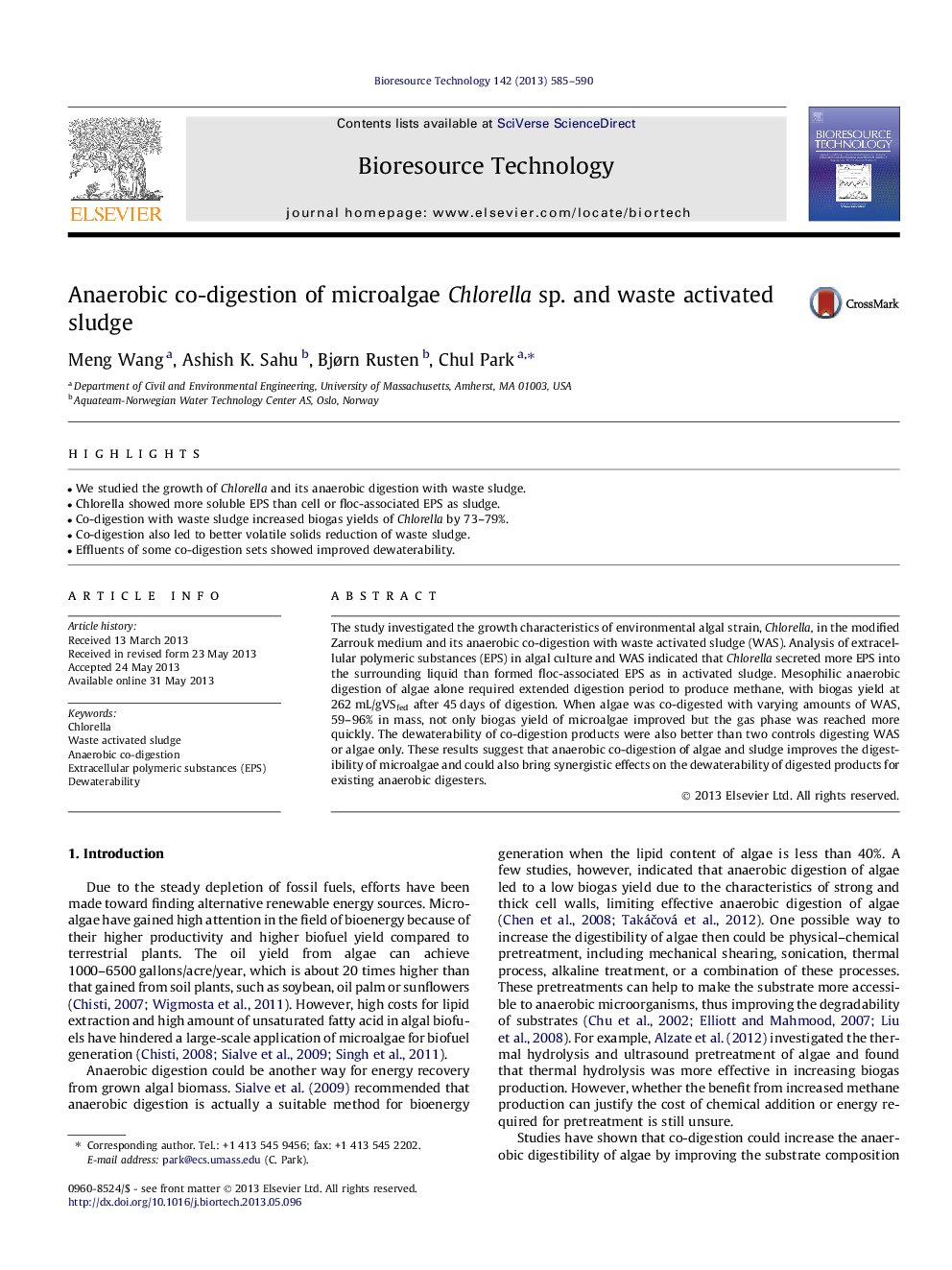| Article ID | Journal | Published Year | Pages | File Type |
|---|---|---|---|---|
| 7081739 | Bioresource Technology | 2013 | 6 Pages |
Abstract
The study investigated the growth characteristics of environmental algal strain, Chlorella, in the modified Zarrouk medium and its anaerobic co-digestion with waste activated sludge (WAS). Analysis of extracellular polymeric substances (EPS) in algal culture and WAS indicated that Chlorella secreted more EPS into the surrounding liquid than formed floc-associated EPS as in activated sludge. Mesophilic anaerobic digestion of algae alone required extended digestion period to produce methane, with biogas yield at 262Â mL/gVSfed after 45Â days of digestion. When algae was co-digested with varying amounts of WAS, 59-96% in mass, not only biogas yield of microalgae improved but the gas phase was reached more quickly. The dewaterability of co-digestion products were also better than two controls digesting WAS or algae only. These results suggest that anaerobic co-digestion of algae and sludge improves the digestibility of microalgae and could also bring synergistic effects on the dewaterability of digested products for existing anaerobic digesters.
Keywords
Related Topics
Physical Sciences and Engineering
Chemical Engineering
Process Chemistry and Technology
Authors
Meng Wang, Ashish K. Sahu, Bjørn Rusten, Chul Park,
